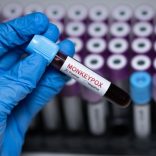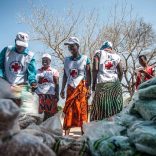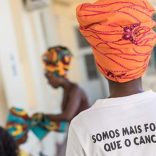Mozambique: Matola 18-year-old mpox patient 'showing improvement' as Maputo province steps up ...
Blood shortage in Inhambane hospitals

DW
hospitals in Inhambane province in southern Mozambique are experiencing a shortage of blood, with the largest hospital in the province having only 15 units of blood in stock. Desperation is leading patients’ families to resort to the black market for supplies.
Doctors in Inhambane are being forced to postpone surgery for lack of reserves. Inhambane Provincial Hospital has only 15 units of the 40 it should have, according to provincial chief doctor Stélio Tembe.
“We are facing a very significant shortfall in blood stocks in all our health units, and especially in Inhambane Provincial Hospital. We currently only have 15 units of blood when we should have 40. This is very little, because this hospital responds to difficulties of the whole province,” he explains.
Fewer blood donors

Idalia Machavene, clinical director at the Chicuque Rural Hospital in Maxixe, agrees that it is difficult to get blood donations.
“We have a very large demand,” she says, but not the stock to meet it. “I would like to have more stock than we have now. We are constantly campaigning for blood donations,” she says.
Also Read: Mozambicans urged to donate blood during festive season – MISAU
She said that patients’ relatives sometimes donate blood, while others purchase it illegally in the informal market, where donors charge up to five thousand meticals (about EUR 70) for half a litre of blood.
To address the situation, blood donor campaigns are taking place in churches, schools and markets.
“We are counting on replacements”
Filipe Wisquete started donating blood this week to help a young woman from his neighborhood, and says he will continue. “Someone told me to donate,” he says, and he says he wanted to know what it felt like to help save a life. “I will do it again. I consider it important to donate now,” he said after the experience.
Also Read: Persons unknown rob National Blood Centre in Maputo, Mozambique
Not everyone is like him, however. There are still too few people giving blood, and Stélio Tembe is pleading for greater community participation.
“When a patient needs a blood donation, we always have to ask a family member to replace the blood, but it’s still too little,” he says.













Leave a Reply
Be the First to Comment!
You must be logged in to post a comment.
You must be logged in to post a comment.